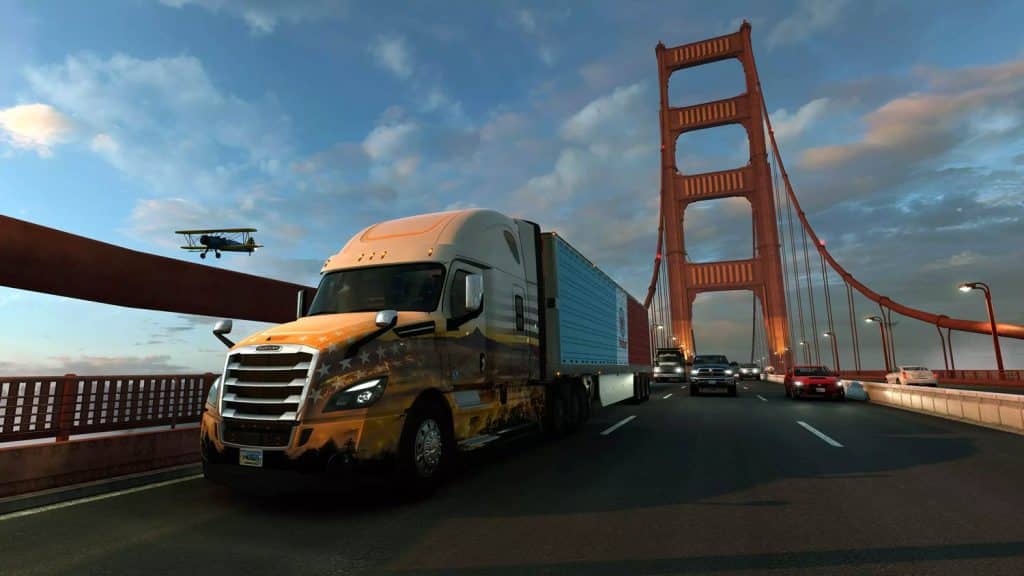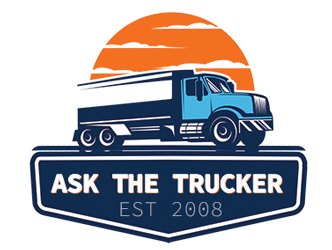How to Start a Trucking Company
Whatever changing trends we see across industries, one thing is certain: businesses will continue to need to move goods across the country. That means there is always going to be a demand for trucking.
There are many steps involved in starting a trucking company, but you do not need to be overwhelmed. In this guide, we go over what you need to do step-by-step to get your own trucking business on the road.
Is It a Good Time to Start a Trucking Company?
With the pandemic causing supply chain issues over the past few years, it was a challenging time to be in the trucking industry. What do things look like as we move into the future?
According to ACT Research, “After a long downturn, freight demand fundamentals are improving as pandemic substitution effects fade and disinflation takes hold, improving real incomes. Interest rate-sensitive sectors, including housing and manufacturing, face a cautious outlook, but the labor market continues to defy expectations of slowdown, even as wage growth slows, easing inflation pressure.”
So, yes, this is a good time to start a trucking company. There should be plenty of opportunity to capitalize on over the years ahead.
10 Steps to Starting a Trucking Company

Now that you have some understanding of the trucking industry outlook for the next few years, we can talk about the steps you need to take to launch your own trucking company.
1. Register your business as an LLC.
There are several different business structures you can consider when you are starting up a trucking business: a limited liability corporation (LLC), a sole proprietorship, a general partnership, an S corp or a C corp.
While there is no one-size-fits-all recommendation, the business structure of choice for many in the trucking industry is an LLC. When you operate your business as an LLC, you can take advantage of pass-through taxation and liability protection.
Basically, if you were to have a C corp, you would end up paying taxes twice. But when you have an LLC, you can steer clear of the pitfall of double taxation thanks to your pass-through status. You can also grab the qualified business income deduction (QBI) while it is still around.
As for the liability protection, what that means is that if your trucking business incurs debts or other liabilities, it is the LLC itself that is liable, not you as a private individual.
Forming an LLC on your own can seem somewhat confusing and complicated. Thankfully, there are companies that can help you with LLC formation. We recommend Zen Business.
This service can save you a ton of time and legwork by helping you choose a registered agent, file your formation documents, obtain your EIN (we will explain more about EINs in the next section), create your operating agreement and financial infrastructure, and get your licenses and permits.
We like Zen Business because they are fast and efficient with LLC formation and they charge a very reasonable, transparent fee for their services. They also simplify the entire process and provide great customer service at every stage. If you have a sea of questions about forming an LLC, they will give you patient, in-depth answers so you can proceed with confidence.
2. Obtain an EIN.
One of the steps involved with forming your business is to get an employer identification number (EIN) .
This is a number that you use to file your taxes for your business, similar to how you use a social security number for filing taxes as an individual.
3. Obtain a USDOT number and MC number.
When you are going to run a trucking company, a couple more numbers you need to get are a Department of Transportation (USDOT) number and a motor vehicle carrier (MC) number.
Both of these numbers will be assigned to you by the Federal Motor Carrier Safety Administration (FMCSA).
4. File your BOC-3.
Around this time, you will also need to file your BOC-3 with the FMCSA.
Plan to cross state lines? If so, be sure to also apply for your International Registration Plan (IRP) credentials and get International Fuel Tax Agreement (IFTA) decals for your trucks.
5. Write your business plan.
This is a good point to start putting together your business plan. This document will help you visualize how your company will work, and will guide you the rest of the way toward building and operating it. Here is what should go into a traditional business plan:
- Executive summary
- Description of the company (i.e. what you will specialize in and what size your company will be)
- Market analysis (including competitor analysis in the niche(s) and geographical area(s) you want to target
- Regulations and compliance considerations
- Company organization and management structure
- Your trucking services
- Your operations plan for how you will run your business day to day
- How you will manage your marketing and sales
- Funding requirements (if seeking outside funding)
- Financial projections
You can also include a number of documents in the appendix that are associated with the company (i.e. permits).
This is one way to do a business plan, but it is not the only way. There are alternative business plan formats you can follow if you deem it appropriate.
Planning your trucking business is your chance to make sure that your idea is viable—that there is a market for your services, that you will be able to turn a profit, that you know how to advertise. Think of it as an in-depth reality check.
If you are in need of funding, your business plan is part of the documentation you will provide to prospective investors to demonstrate to them that your business could pay off. The more detailed your plan is and the more solid your financial projections are, the more likely it is you will get the funding you need.
6. Buy your vehicles and equipment.
Now that you have gotten all of the planning and registration steps out of the way, you can start physically gathering what you need to operate your trucking company.
Of course, the most important thing you will need are the trucks themselves. You also may need equipment for loading and unloading, vehicle maintenance and more.
If you are just going to be an owner-operator driving your own truck, you might not need an office out of which to work; you are going to be on the road the majority of the time. But if you will be running a fleet, then you also will need to lease or buy premises from which to do that.
7. Apply for insurance.
In order to legally drive trucks on the road, they need to be insured. You may also need to apply for a number of other types of insurance for your equipment, your company offices, and so forth.
Insuring a trucking business is a complex enough topic to cover a whole other article. This step is going to require significant research and planning to keep your costs manageable while still getting ample coverage.
8. Take care of additional trucking business setup steps.
This is a good time to take care of your International Registration Plan, and obtain apportioned plates. You also will need to complete your Unified Carrier Registration.
9. Hire personnel.
If you are going to be working as an owner-operator with just one truck,you may not need to hire anyone for your business. You will be the one driving and handling all administrative work for your trucking company.
If, on the other hand, you are going to operate a business with more than one truck, you will at least need to hire another driver. Depending on your fleet size, you might need to hire quite a few drivers. You also may need to hire additional office staff as well as workers who can help with loading and unloading freight.
You are probably aware that turnover in the trucking industry is notoriously high. While some of that results from the challenging nature of the job, many truckers who quit will tell you that the reason they did had to do with problematic employers, not the fatigue of being on the road.
That is good news for you as an employer, however. If you are able to run your company well and treat your employees right, you should find it pretty easy to retain them. Truckers are in search of a company that they can grow their careers with over the long term without burning out.
10. Market your business.
Last but not least, you need a way to find work to do after you start your own trucking company.
How intensive this process is and what it entails will vary based on the structure and size of your business.
For example, if you are an owner-operator driving your own truck, you probably can get the work you need just by signing up on some quality load boards and taking jobs as they come.
But when you are running a bigger trucking operation, you are going to need to do some outbound marketing. Here are some ideas that may help:
- Website: A good starting point is to build a website for your company. Make sure it is responsive for different platforms, easy to navigate, informative, and professionally designed.
- Social media: Many companies maintain their online presence as much or more through social media as they do through their own websites. Open accounts on major social networks, and keep them up to date with useful industry information. Reach out to companies that might be interested in your services and start building relationships.
- Industry publications: It might surprise you to learn that print ads are still valuable in the trucking industry. Try purchasing some in industry publications to get the word out.
- Networking: Join a few industry associations. Like social media, these can help you to network effectively, making the connections you will need to bring in work.
- Referrals: When you begin growing your business, people will start to talk about the great service you provide. That means that over time, hopefully, referrals will start pouring in. As your business becomes more established, these may become some of your main sources of work.
Make no mistake—marketing is one of the biggest challenges of running any type of business, including a trucking company. You literally are relying on it for your income and that of your employees, and it can take a fair amount of trial and error to figure out what works, what doesn’t, and what you can change to make the avenues that are working more effective.
If you know anyone else who started their own trucking company from the ground up, you should ask them what they did to get their first jobs.
Start Your Trucking Business
Now you know step-by-step what you need to do in order to start a trucking business. While it may seem like a lot, if you work methodically through the list above, you may be launching your business sooner than you think. If you are ready to take the first steps, click the link below to quickly and easily form your trucking LLC with the help of Zen Business.


